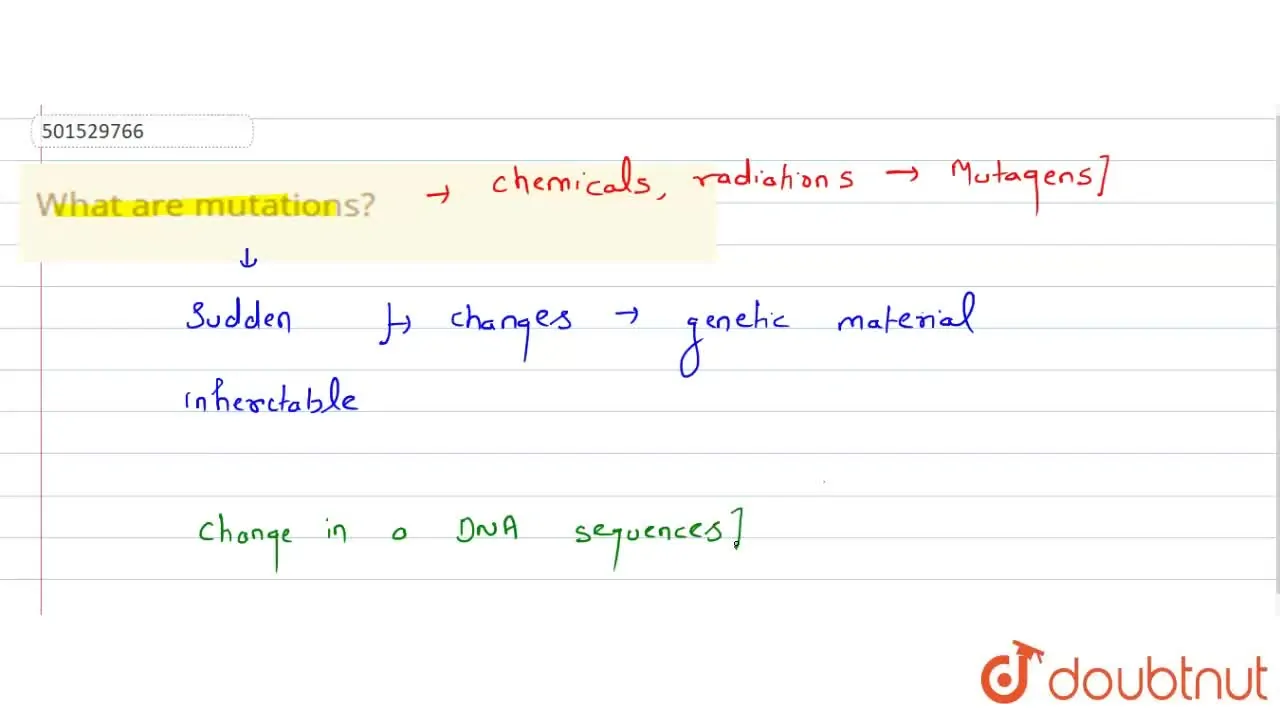What are mutations?
Video Solution
Text Solution
Sudden, large and inheritable changes in the genetic material are called mutations.
|
Updated on:21/07/2023
Related Playlists
- BOOK - MODERN PUBLICATIONCHAPTER - EVOLUTIONEXERCISE - PRACTICE PROBLEMS (REPRODUCTIVE ISOLATION)9videos
EVOLUTION
- BOOK - MODERN PUBLICATIONCHAPTER - EVOLUTIONEXERCISE - PRACTICE PROBLEMS (HUMAN EVOLUTION)7videos
EVOLUTION
- BOOK - MODERN PUBLICATIONCHAPTER - EVOLUTIONEXERCISE - PRACTICE PROBLEMS (NATURAL SELECTION)7videos
EVOLUTION
- BOOK - MODERN PUBLICATIONCHAPTER - ECOSYSTEM EXERCISE - Chapter Practice Test (Section - D) (Case - Based Short Answer Type Questions)5videos
ECOSYSTEM
- BOOK - MODERN PUBLICATIONCHAPTER - HUMAN HEALTH AND DISEASESEXERCISE - Chapter Practice Test2videos
HUMAN HEALTH AND DISEASES
Similar Questions
What is mutation?
View SolutionWhat causes mutations?
View SolutionWhat is mutation ? List the differences between somatic mutation and germinal mutation.
View SolutionGene mutations
View SolutionMutation is
View SolutionMutation is
View SolutionMutation is
View SolutionWhat is mutation breeding? Write down some examples of it.
View SolutionWhat are forward and reverse mutations?
View SolutionWhat is mutation breeding? List two disease resistant crop plants produced by mutation breeding. Also list its two limitations.
View Solution


